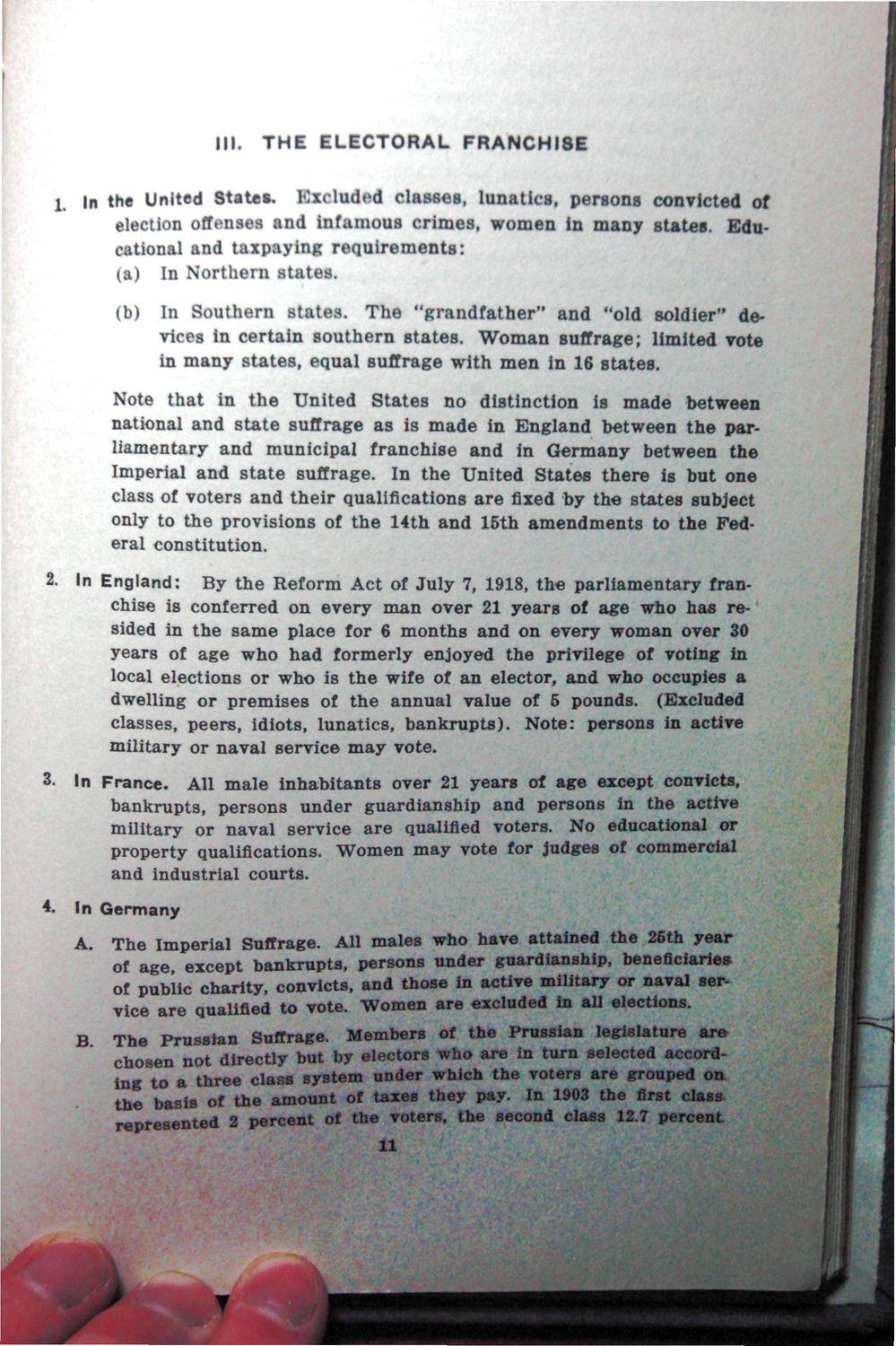Caption: War Publications - WWI Compilation 1923 - Article 48
This is a reduced-resolution page image for fast online browsing.

EXTRACTED TEXT FROM PAGE:
III. T H E ELECTORAL FRANCHI8E 1, In the United States. Kxrluded classes, lunatics, persons convicted of election offenses and infamous crimes, women in many states. Educational and taxpaying requirements: (a) In Northern states. (b) In Southern states. The "grandfather" and "old soldier" devices in certain southern states. Woman suffrage: limited vote equal suffrage with men between Note that in the United between Germany Imperial and state suffrage. In the United States there is but one the states amendments constitution 2. In England: By the Reform Act of July 7, 1918, the parliamentary franchise is conferred on every man over 21 years of age who has resided in the same place for 6 months and on every woman over 30 years of age who had formerly enjoyed the privilege of voting in local elections or who is the wife of an elector, and who occupies a dwelling or premises of the annual value of 5 pounds. (Excluded classes, peers, idiots, lunatics, bankrupts). Note: persons in active military or naval service may vote. 3. In France. except bankrupts, persons under guardianship and persons in the active military or naval service are qualified voters. No educational or nronertv Qualifications. Women may vote for judges of commercial courts 4. In Germany A. The Imi All bankrupts of public charity, convicts, and those m active military or navai service are qualified to vote. Women are excluded in all elections. B. The Prussian Suffrage. Members of the Prussian legislature are chosen not directly but by electors who are in turn selected according to a three class system under which the voters are grouped on the basis of the amount of taxes they pay. In 1903 the first class. represented 2 percent of the voters, the second class 12.7 percent 11
|